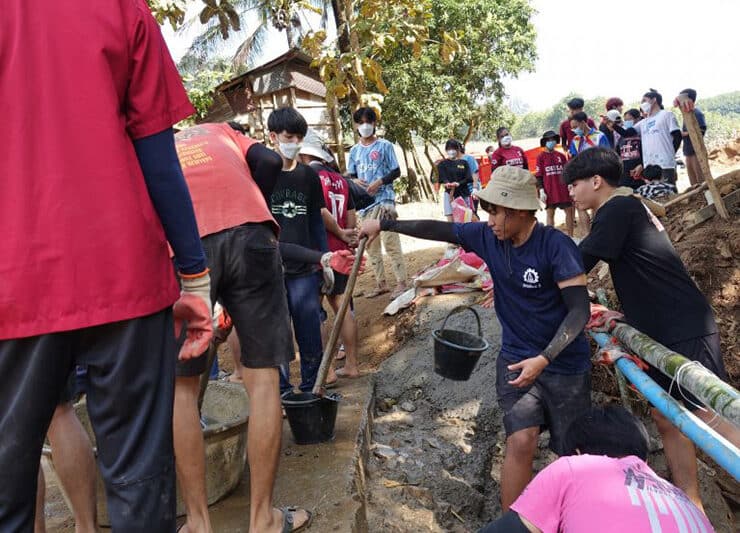Chulalongkorn University: Harnessing Collaborative Power for Global Health and Well-being
In a world full of health challenges, Chulalongkorn University stands as a beacon of hope, dedicated to advancing Sustainable Development Goal (SDG) 3 of the United Nations—ensuring healthy lives and promoting well-being for all. The university achieves this through an extensive network of collaborations, stretching from local communities to the global stage.
Chulalongkorn has established two world-class research hubs: the Thai Red Cross Emerging Infectious Diseases Health Science Centre (EID) and the Chula Vaccine Research Center (Chula VRC), Faculty of Medicine, Chulalongkorn University. These centers not only safeguard the health of the Thai population but also lead the development of international best practices for managing emerging infectious diseases and promoting human health globally, supporting SDG 17 on partnerships for sustainable development.
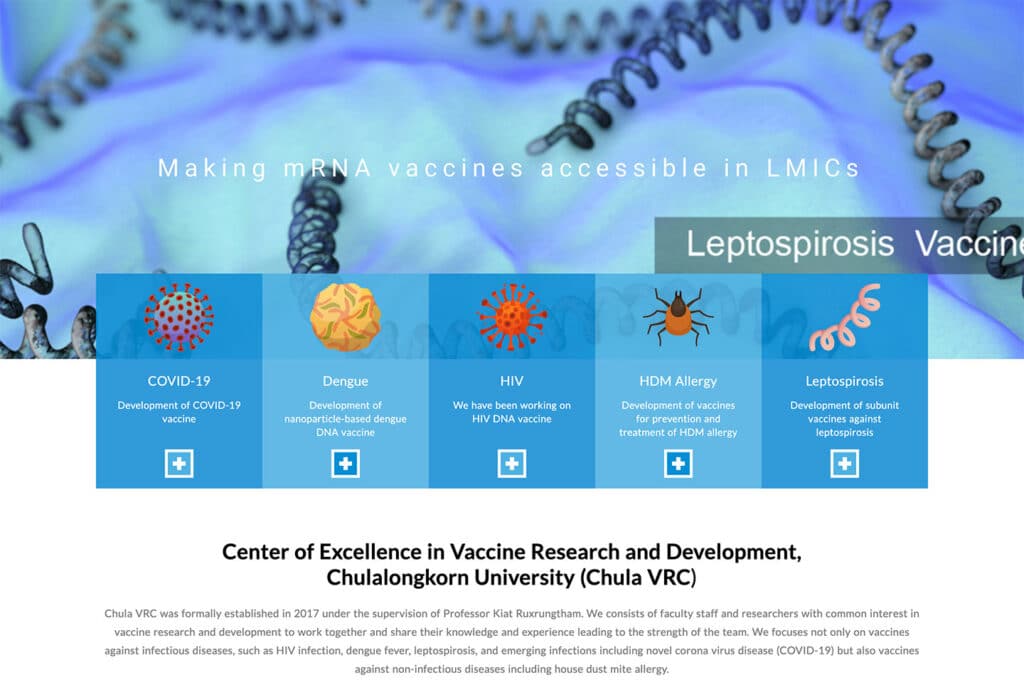
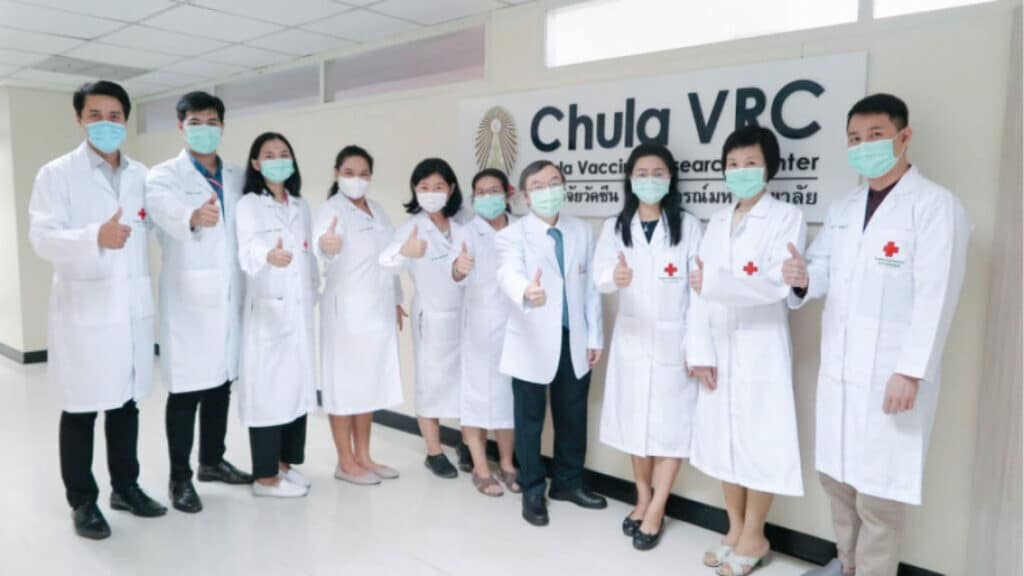
Chula Vaccine Research Center (Chula VRC)
[ https://www.chulavrc.org/ ]
Strong Foundations: Impact at the Local Level
When emerging diseases threaten communities, the EID Centre acts as the first line of defense. It works closely with local public health officers to translate advanced scientific research into practical tools on the ground. From developing diagnostic methods using diverse samples—such as breast milk, amniotic fluid, semen, saliva, or tissue specimens—the center enables rapid and accurate disease detection.
Beyond research, integrating training programs for local health personnel strengthens community resilience against outbreaks.
Similarly, ChulaVRC extends this mission by collaborating with leading educational and healthcare institutions, such as Chiang Mai University and King Mongkut’s University of Technology Thonburi, to build an innovative ecosystem for vaccines and public health that ensures communities have greater access to vaccines and disease-prevention knowledge.
National Pillar: Strengthening Thailand’s Health Security
Chulalongkorn is not just a university—it is a national health security hub. The EID Centre coordinates closely with the Ministry of Public Health and Department of Disease Control to diagnose and confirm infectious diseases, including COVID-19. The data provided by the center has become a critical guide for outbreak prevention, protecting millions of lives.
ChulaVRC elevates national health security further by developing vaccines that are safe, effective, and accessible for major health threats—COVID-19, dengue, HIV, leptospirosis, and dust-mite allergies.
Collaboration with Thai agencies and leading companies such as Bionet-Asia has enabled domestic mRNA vaccine production. The development of ChulaCov19, a second-generation (Bivalent) mRNA vaccine tested in Thailand and Australia, demonstrates that Thailand can now produce world-class vaccines independently, strengthening long-term health security
ChulaVRC also looks ahead by developing vaccines for future pandemics and chronic public health challenges, creating production standards that are accessible and affordable to protect everyone.
Connecting the World: International Collaboration and Research
In an era where infectious diseases know no borders, Chulalongkorn recognizes that solutions require global collaboration. The EID and ChulaVRC centers have expanded their research networks internationally, partnering with leading organizations such as the World Health Organization (WHO), USAID, and the U.S. Department of Defense.
EID participates in key international research programs, including USAID’s PREDICT project, to build research networks and develop laboratories for emerging infectious diseases. Their research focuses on the human-animal interface (zoonoses) to identify animal carriers and high-risk areas—preventing outbreaks before they escalate.
The center also collaborates with WHO to train member countries across 11 Southeast Asian nations, supporting the development of global standards for emerging disease prevention and establishing a strong regional defense network
ChulaVRC takes international collaboration further by working with global experts, including Professor Drew Weissman of the University of Pennsylvania (2023 Nobel Prize in Physiology or Medicine) and the U.S. National Institutes of Health (NIH), in developing mRNA vaccines.
These collaborations not only bring advanced technology to Thailand but also enable the country to review comparative approaches and develop international best practices in managing emerging infectious diseases and promoting global health—supporting SDG 17 on partnerships for sustainable development.
Global Standards: Establishing International Best Practices
Through collaborations spanning local communities to the global stage, EID and ChulaVRC have become leaders in setting international standards for managing emerging infectious diseases.
A notable example is the development of the COVID-19 Mass Spectrometry Test—a rapid, accurate, and cost-effective technology that detects viruses and related proteins at scale. This innovation exemplifies the integration of international knowledge with local context.
Such collaborations enhance Thailand’s capacity in research, prevention, and vaccine management, while establishing international best practice standards that other countries can adopt.
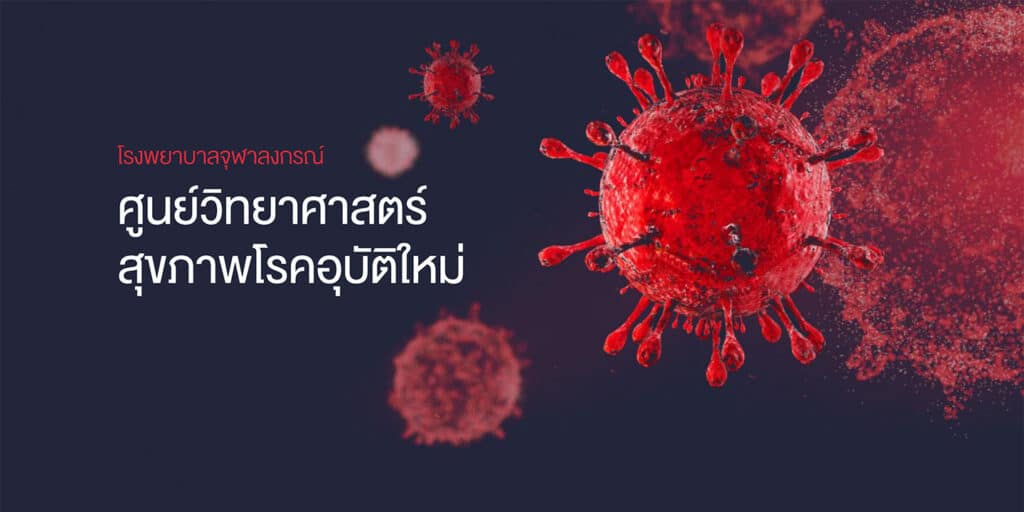
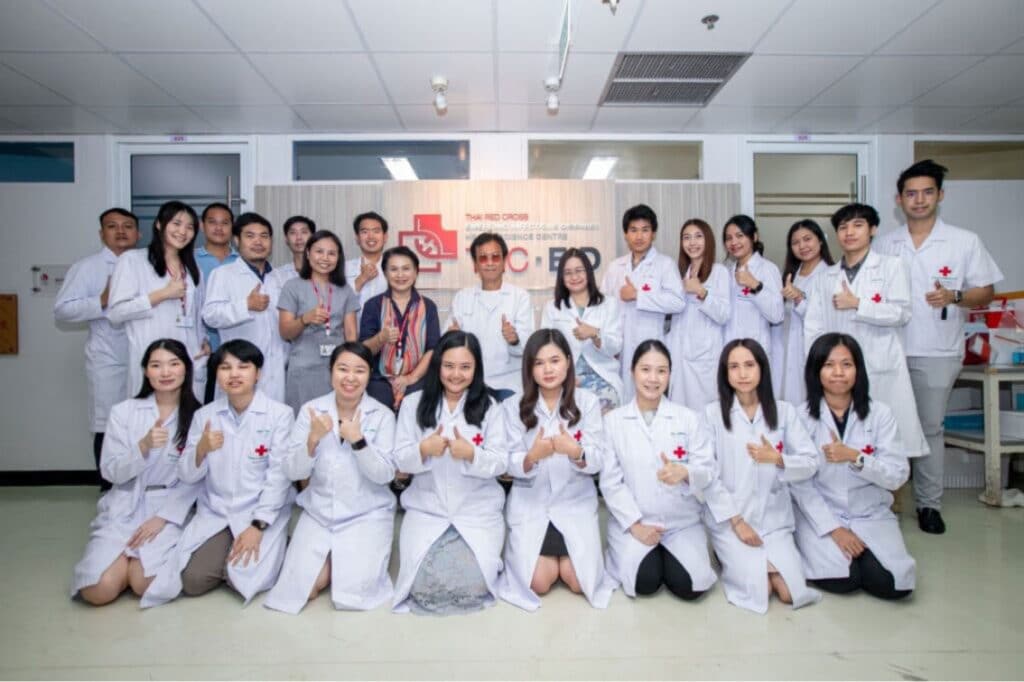
Thai Red Cross Emerging Infectious Diseases Health Science Centre
[ https://www.trceid.org/home ]
Conclusion: From Chulalongkorn to a Healthier World
Through EID and ChulaVRC, Chulalongkorn University demonstrates that cross-border and cross-sector collaboration can generate tremendous impact—from protecting local communities and strengthening national health security to setting global standards that safeguard human health.
These proactive efforts and collaborative partnerships concretely advance SDG 3 (Good Health and Well-being) and SDG 17 (Partnerships for the Goals), contributing to a healthier and more equitable world for all.
BY
- Thai Red Cross Emerging Infectious Diseases Health Science Centre
- Chula Vaccine Research Center (Chula VRC)
- Faculty of Medicine, Chulalongkorn University
Others




